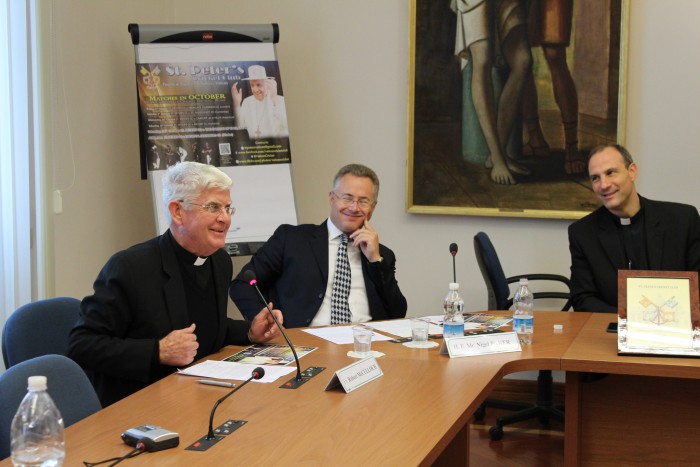14th October 2015
Rome: the global home of religious encounter


All the media focus here at the Vatican at the moment is on the cut and thrust of debate at the Synod of Bishops, meeting on the issue of the family. Amidst the coverage of differences between bishops, proposals on pastoral practice and doctrine, and the views of the Pope, one important dimension has been missed: the presence and role of the “fraternal delegates”.
There are 14 of them, and they represent the many faces of Christianity in the world today. Two, from the World Methodist Council and the Anglican Communion, come from Britain, and from my meetings with them I have been struck by how much they have been able to contribute and propose, as well as listen. While they do not have a vote, they do have a voice, regarded by many of the Synod fathers as providing a valuable outside perspective for these Catholic debates, preventing them from becoming too inward looking.
Their presence is another example of the role of the Vatican as an interfaith crossroads where leaders and representatives of different faiths and Christian denominations can meet, talk, and understand each other a little better. This week, I have also met the Moderator of the Church of Scotland who is not attending the Synod, but is here to have talks with Holy See officials working on ecumenical issues, as well as visit communities, such as the Waldensians, that enjoy a close relationship with the Kirk. And at the end of this week, I will have the privilege of presenting the Sir John Major Friendship Cup to the winners of a cricket match between a Muslim team from Yorkshire, the Mount Cricket Club, and the St Peter’s XI, also known as the Vatican Cricket team.
People often talk about the role of religion in generating conflict. My own experience over four years here has been different. Yes, there are extremists who use religion to justify their actions. But in fact, these days, people of faith are often more likely than others to try to find the space and time to talk to those who believe differently from themselves, sharing their faith and their experiences as human beings.
The Pope told Catholic bishops in the United States during his recent trip that they should seek to avoid confrontation and focus on dialogue. Dialogue implies making an effort to understand better someone who thinks differently from yourself, and is the first step to preventing conflict. There are many ways to engage in dialogue, be it through an encounter on the cricket field, in a Synod, over a meal or in a Vatican office. The key thing is that it happens. At a time of complex globalisation and virtual networks replacing physical ones, we need more crossroads in our lives.
Benedict XVI was (is ) a great listener. It seems that Francis I is, also.We cannot expect anyone to listen, if we do not truly listen to them FIRST.Jesus showed us this by His life on earth. He came as the poorest of the poor.Lived poor all His life;yet, He was richest of all. People generally listen only, when they have to. Jesus is always listening and only talks when we are ready to listen to His words.. Remember , all the original protestants were originally Catholics whom no one wanted to listen to ………No matter your denomination or belief , the “Golden Rule” is the best ….do for others what you would have them do for you….People
¿Catholic Church? ¿Dialogue?…With Methodists, with cricket players, with anyone. Just not with women on terms equality and rights